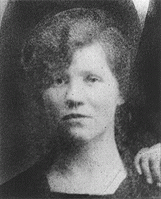You searched for: 国际理财源码快速搭建【TG���������@EK7676】平台包网搭建国际理财源码快速搭建【TG���������@EK7676】平台包网搭建1dh5qRrR48
<< Previous | Displaying results 491-500 of 652 for "国际理财源码快速搭建【TG���������@EK7676】平台包网搭建国际理财源码快速搭建【TG���������@EK7676】平台包网搭建1dh5qRrR48" | Next >>
-
Mendel Felman
ID CardOne of seven children, Mendel was raised in a Yiddish-speaking, religious Jewish home in Sokolow Podlaski, a manufacturing town in central Poland with a large Jewish population of about 5,000. Mendel's parents ran a grain business. As a teenager, Mendel liked to play chess, and he completed his public schooling in Sokolow Podlaski in 1931. 1933-39: After finishing middle school, Mendel went to work in his parents' business. When he was 18, he fell in love with Frieda Altman who was in the same Zionist…
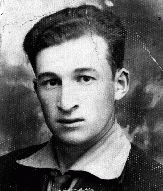
-
Guta Blass Weintraub
ID CardGuta was born to a Jewish family in the Polish city of Lodz, the nation's second-largest city and the center of its textile industry. Her father, a successful businessman, owned a clothing factory, which produced uniforms for the Polish army. Guta attended a private Jewish school in Lodz. 1933-39: On September 1, 1939, not long after Guta began secondary school, the Germans invaded Poland. Polish soldiers moved quickly through Lodz to defend the border, but a few days later, after being beaten, they came…
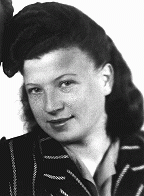
-
Lifcia Najman
ID CardLifcia and her brother and two sisters were born to religious Zionist parents in Radom, a major center of Polish leather production. The city had more than 100 tanneries and shoe factories. Lifcia's father worked as a leather broker, matching manufacturers with clients who sought specific types of leather. The Najman family lived in a two-room apartment in the center of town. 1933-39: At secondary school, Lifcia learned math, science, Polish language, history, and German. Three times a week she attended a…
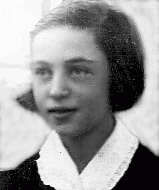
-
Herschel Gerszonowicz
ID CardThe fourth of eight children, Herschel was born to Jewish parents in south central Poland. His father was a machinist and locksmith. Herschel belonged to the Zionist youth organization, Ha Shomer ha-Tsa'ir, and played soccer for the Jewish team. When he was 14 years old, he left school to become apprenticed to his stepsister's father who was a tailor. 1933-39: Herschel was working as a tailor in Miechow when, on September 1, 1939, the German army invaded Poland. His parents decided that he and his…
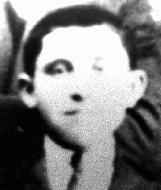
-
David Klebanov
ID CardBorn in the town of Volkovysk when it was part of Russia, David was the son of middle-class Jewish parents. When the family's life was disrupted by World War I and the Russian Revolution of 1917, they moved to Borisov and Kiev before finally settling in the Polish city of Bialystok. After completing secondary school in 1925, David studied medicine at Stefan Bathory University in Vilna. 1933-39: After medical school David served one year in the Polish army. Then he practiced obstetrics at a beautiful…
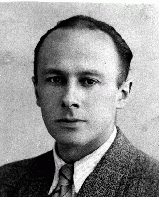
-
Iosif Kirzhner
ID CardIosif was the second of four boys born to a Jewish family in the southern Ukrainian port of Odessa, a city with the largest Jewish community in the Soviet Union before World War II. Iosif's father worked as a hat maker, while his mother raised the family. 1933-39: In 1936 Iosif joined the Red Army and was trained to drive a tank. After Germany invaded Poland on September 1, 1939, the Soviet Union took advantage of its nonaggression pact with the Germans to claim Finnish territory. The Finns resisted them…
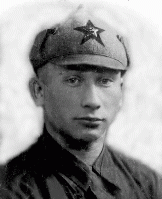
-
Elka Rosenstein
ID CardElka was raised in a large, Yiddish-speaking Jewish family in Sokolow Podlaski, a manufacturing town in central Poland with a large Jewish population of some 5,000. Elka was 14 when she graduated from middle school. After completing her schooling, she became a tailor. Working at home, she made clothes for different clothiers in town. 1933-39: Elka was unmarried and living with her parents when war between Germany and Poland broke out on September 1, 1939. German aircraft bombed Sokolow Podlaski's market…
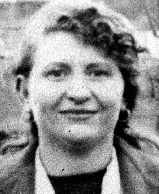
-
Sabina Low (Green)
ID CardSabina was one of four children born to a Jewish family in the Polish town of Ulanow. Her father was a landowner and cattle merchant in the area. The Jewish community in Ulanow was active, with many of its own organizations and a large library. Sabina attended public school in the morning and a private Jewish school in the afternoon. 1933-39: The public school was open Saturdays, but since it was the Jewish Sabbath, Sabina and her siblings didn't attend. They'd ask their Christian classmates for the…
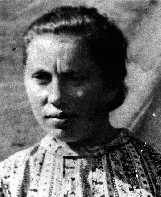
-
Shaul Himmelfarb
ID CardOne of nine children, Shaul was raised in a Yiddish-speaking, religious Jewish family in Koprzewnica, a small town in southern Poland. He married his teenage sweetheart, Alta Koppff, and opened a grocery store in the front of his mother-in-law's house. The couple had three children. The store's busiest day was Thursday, when farmers and villagers would come to town for market day. 1933-39: On September 1, 1939, Germany invaded Poland. Soon after, German troops entered Koprzewnica. While fighting between…
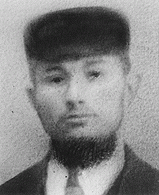
-
Alta Koppff Himmelfarb
ID CardThe daughter of a rabbi, Alta was one of six children raised in a Yiddish-speaking Jewish family in the town of Koprzewnica [in Poland]. Alta was one of the prettiest girls in town, and when she was 19 she married Shaul Himmelfarb, a childhood friend. Shaul opened a grocery store, and Alta ran the store on market days when Shaul was away buying merchandise. The couple had three children. 1933-39: On September 1, 1939, Germany invaded Poland. Soon after, German troops entered Koprzewnica. While fighting…
